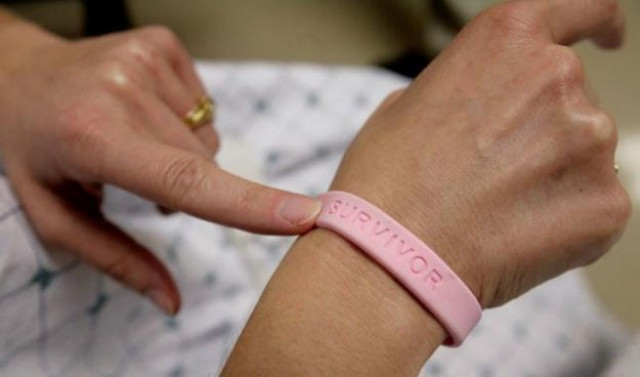Early detection saves lives, say doctors
Ziauddin University experts stress the need to empower women in addressing ‘taboo’ subject

Breast cancer is one of the leading causes of death and is the most common kind of cancer among women all over the world, said Ziauddin University pro-chancellor Dr Nida Hussain on Thursday.
Addressing a virtual seminar organised on Pink Ribbon Day entitled 'Early Detection Saves Lives,' she regretted these fatalities as there is 90 to 95 per cent chance to recover successfully from breast cancer if it is detected in its early stages.
Women between the ages of 20 to 30 years should get screened for breast cancer and carry out self-examinations at least once a month, she recommended. Evaluation and modalities mammography is recommended for those over 40 years of age, she said, adding that mammography should be required at least once in every two years.
Dr Hussain underscored that the illness itself is considered taboo in Pakistani society. "Generally women hide breast cancer symptoms and all other health conditions. There is a fear in women to discuss symptoms," she remarked. "We need to change this perspective and help them get through this trauma. Women need to be empowered in our society."
Meanwhile, elaborating on challenges faced by oncologists during Covid-19, Prof Tariq Siddiqui said that they had been seeing patients throughout the pandemic with all coronavirus-related standard operating procedures (SOPs) in place. No breast cancer-related deaths were witnessed by them during the pandemic, he added.
Dr Siddiqui, who is the director of Ziauddin Hospital's Cancer Centre, said that we need to fight breast cancer throughout the year and not just wait for the month of October to raise awareness. "Our society, and especially women, needs awareness because screening and awareness are key to controlling this cancer. In Pakistan, the main reason for the spread of breast cancer is that people do not want to be tested."
Consultant surgeons Dr Nida Wahid Bashir and Dr Zubia Masood highlighted concerns of breast cancer in pregnant women, which they said was always more aggressive and spreads more rapidly.
"It's mandatory to tell the public that patients can get chemotherapy during pregnancy till the delivery of the baby and surgeries are recommended after delivery," said Dr Bashir, adding that a gap of one year was necessary for a woman to conceive after undergoing chemotherapy, she added.
They pointed out that alarmingly, the disease was increasingly being detected in young girls. The risk factors can be genetic or environmental and habitual, said Dr Masood, advising teenage girls with a family history of breast cancer to begin screenings from an early age


















COMMENTS
Comments are moderated and generally will be posted if they are on-topic and not abusive.
For more information, please see our Comments FAQ